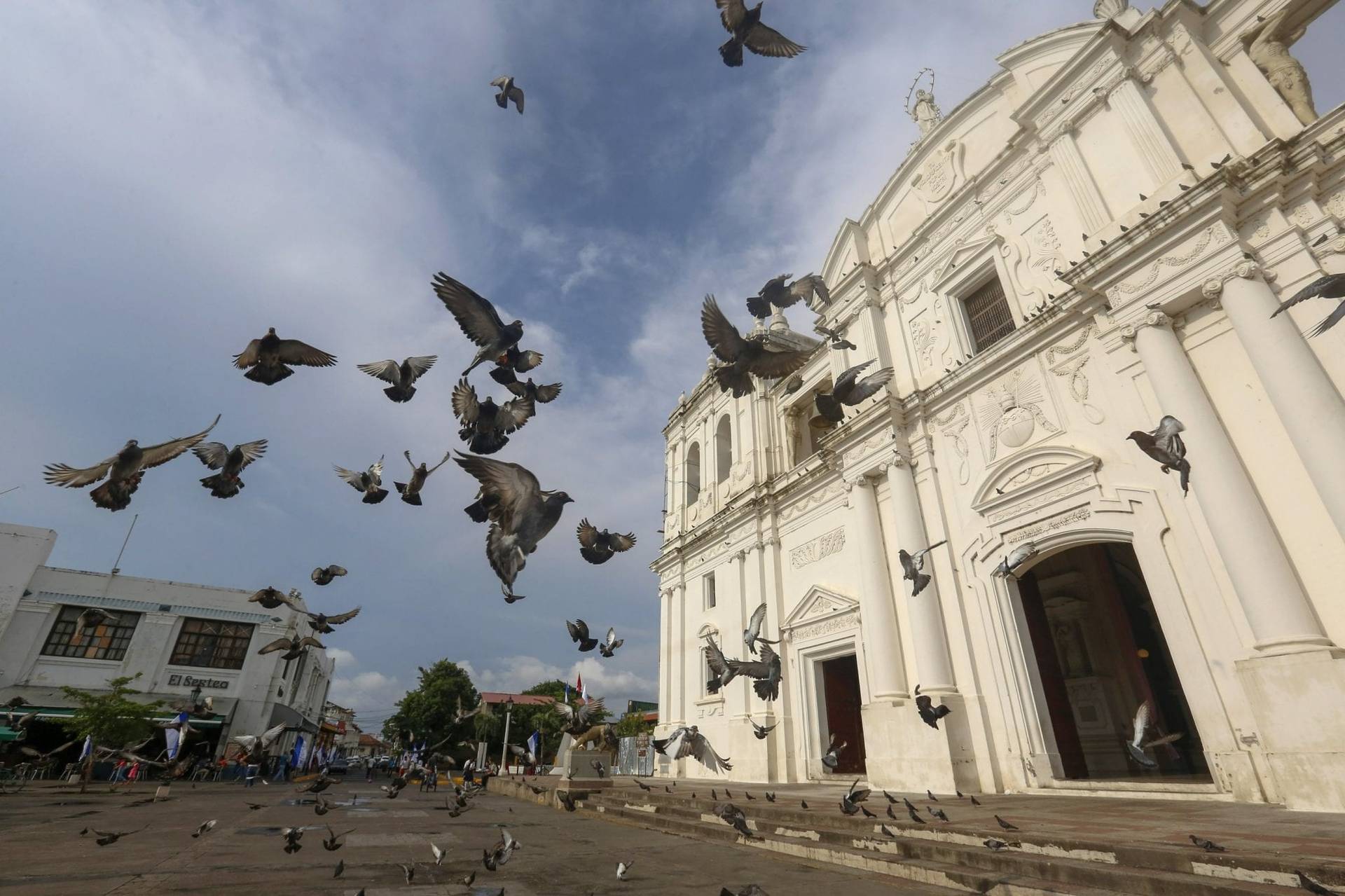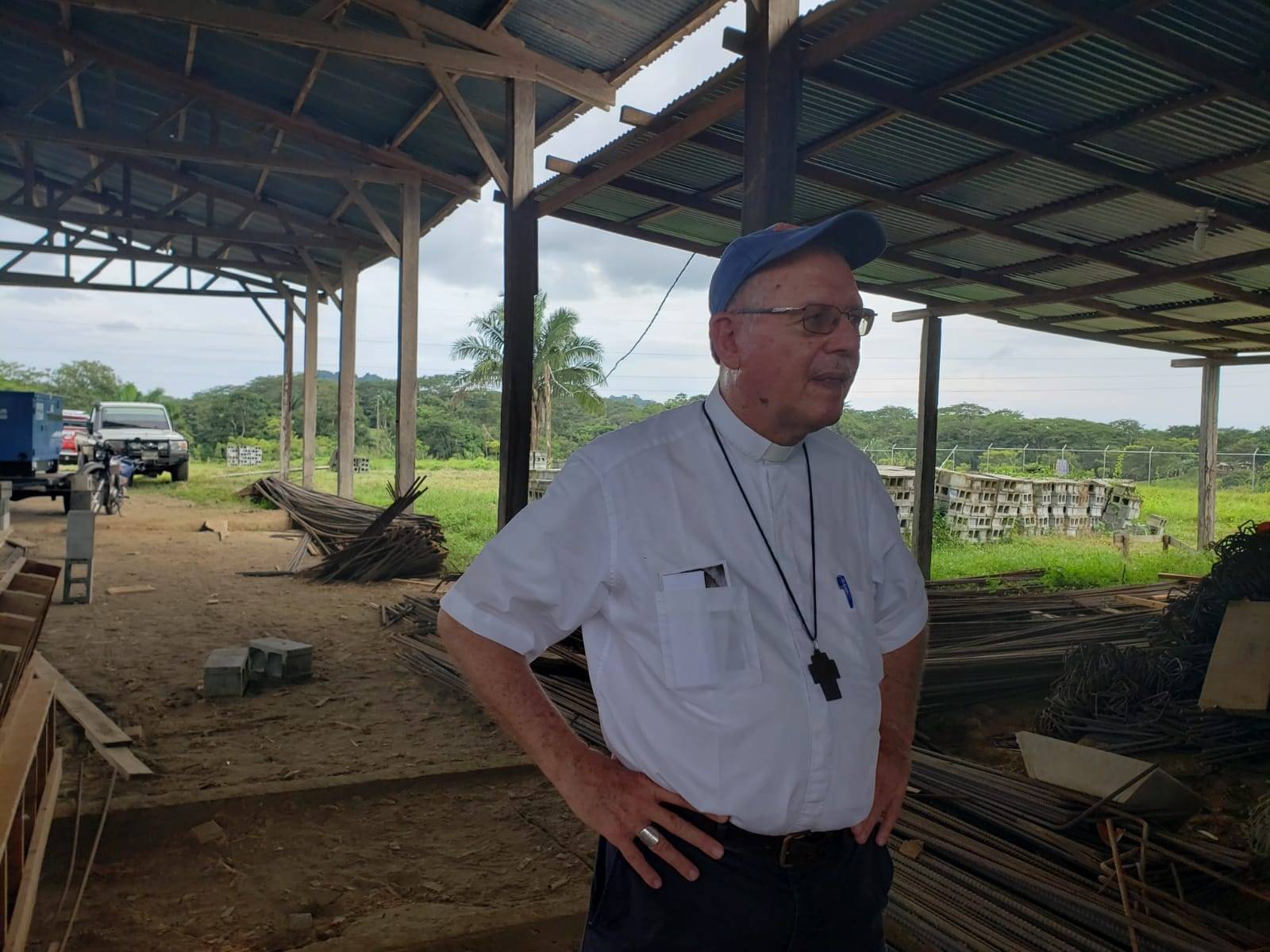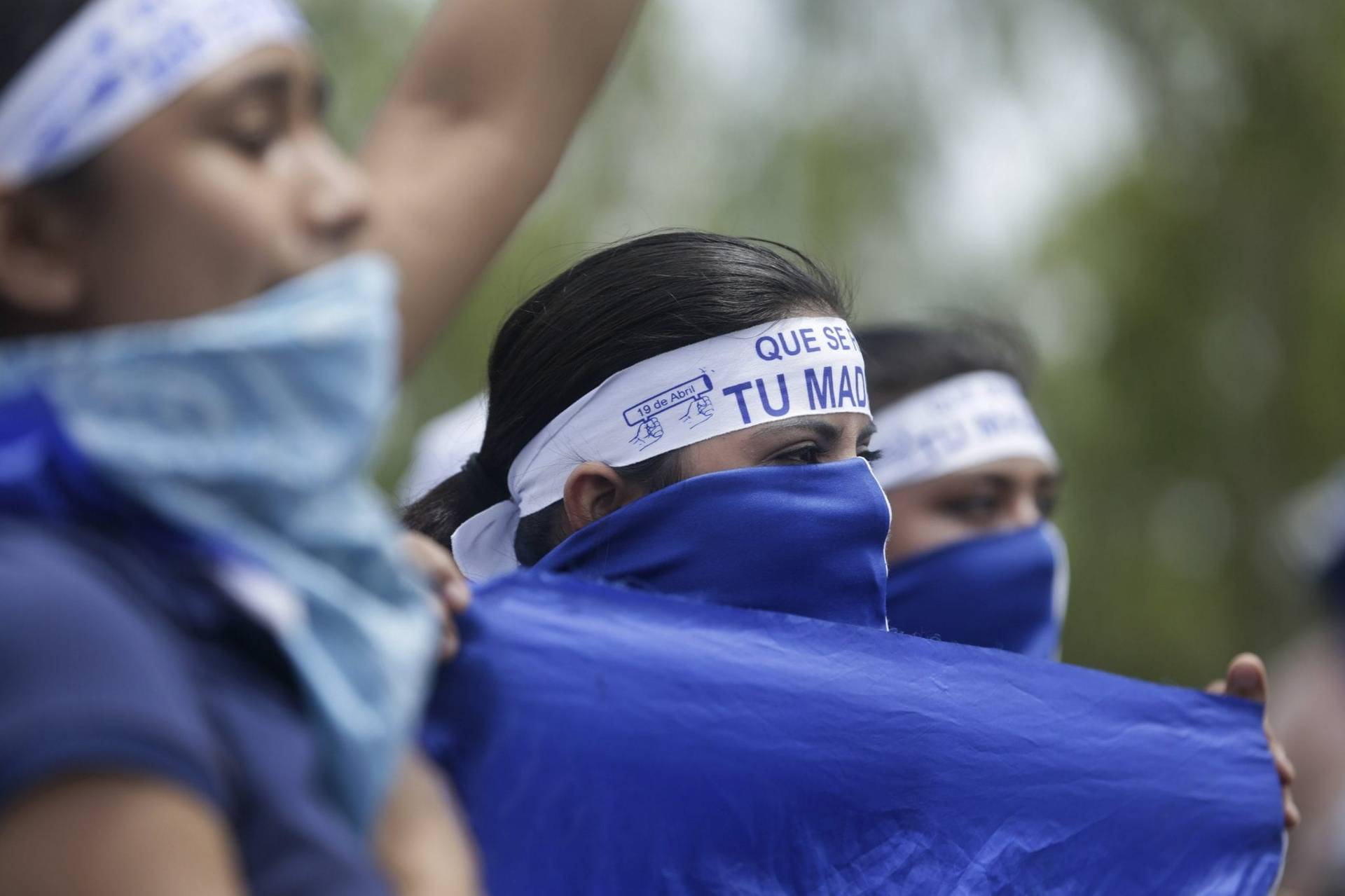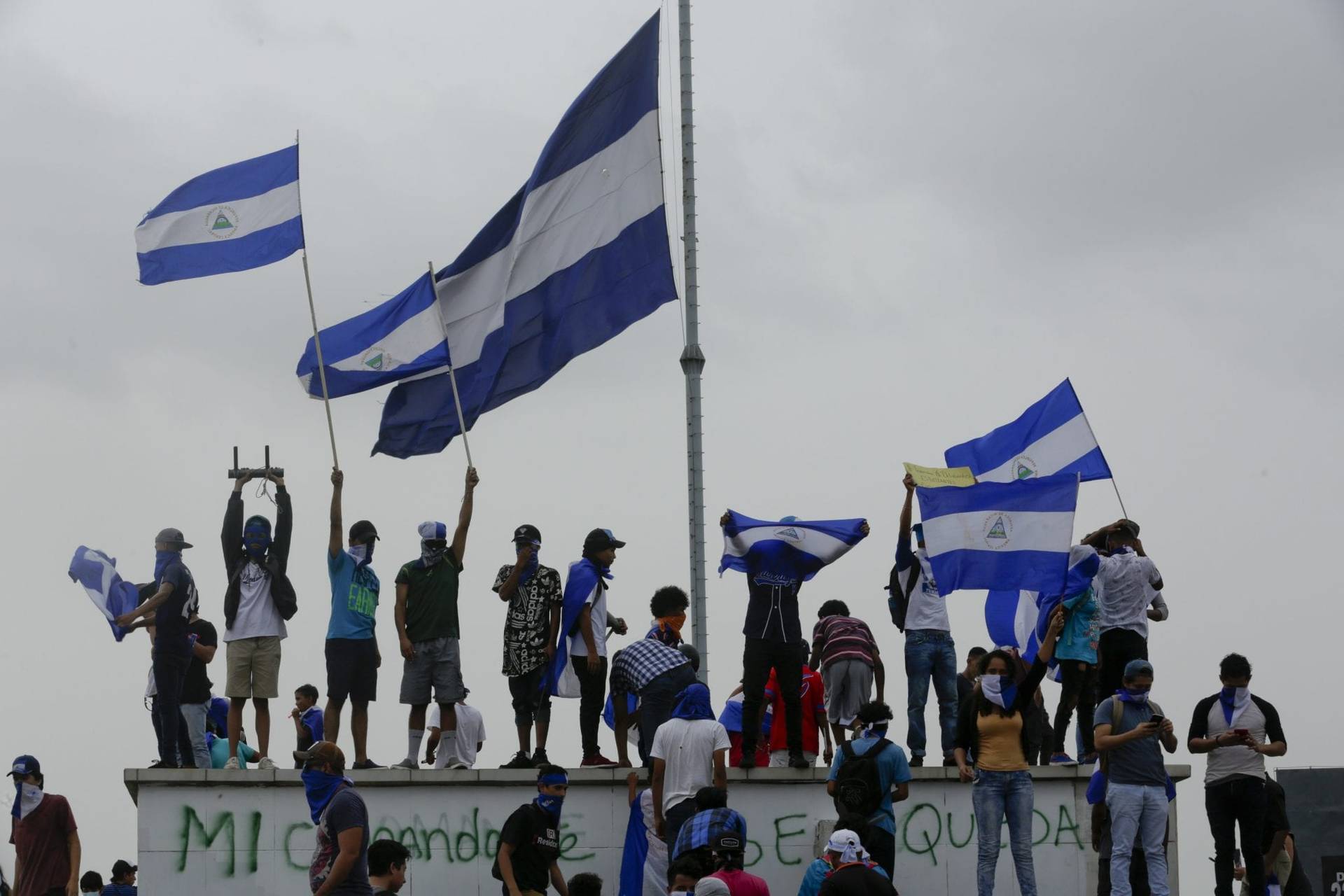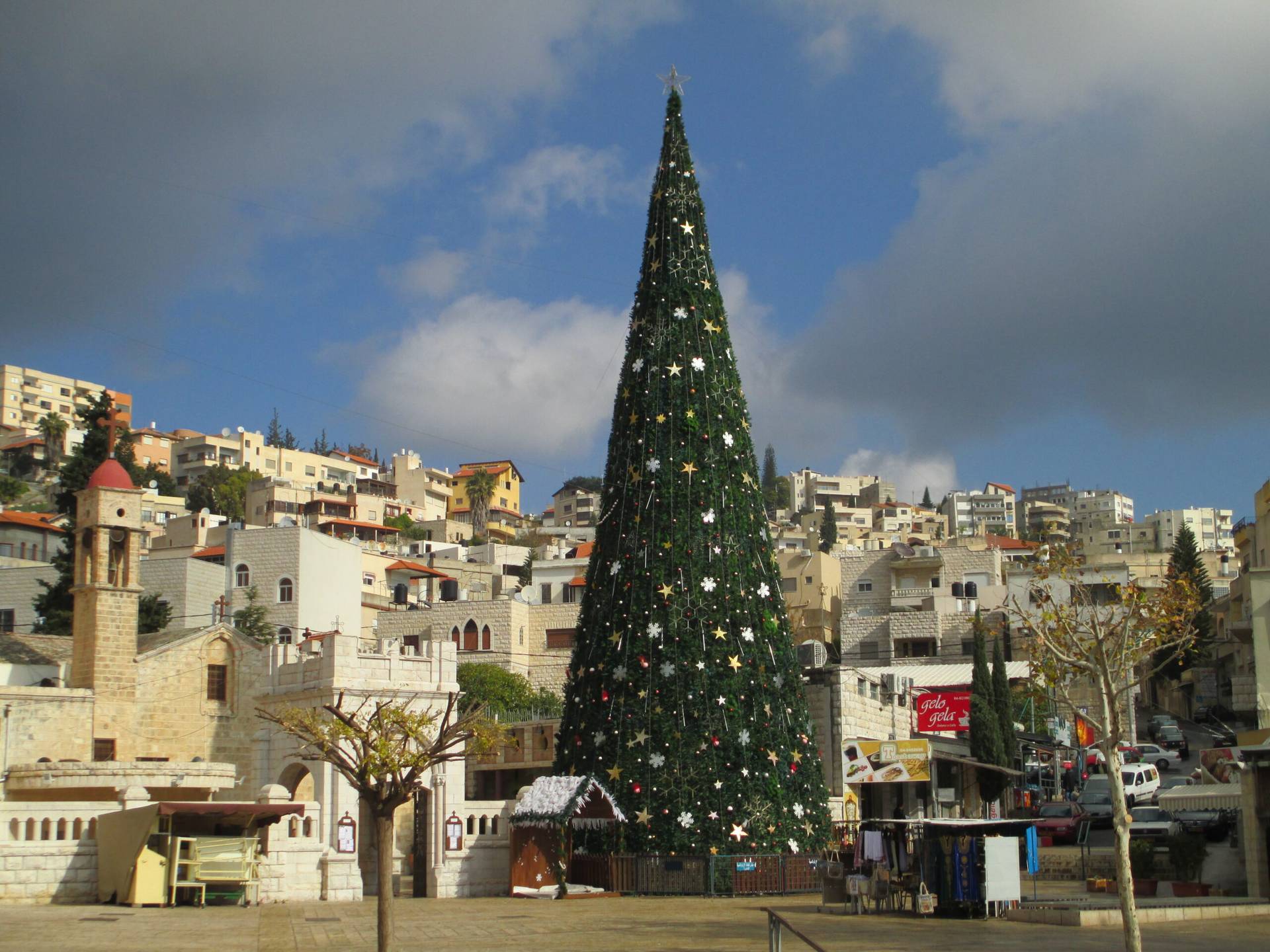BOACO VIEJO-TEUSEPE-CAMOAPA, Nicaragua – Although historically being a Catholic priest in Central America brought tremendous privilege and esteem, today nobody would say it’s a cushy gig. Constant political turmoil, chronic poverty and a priest shortage that might demand a cleric to say five Masses on one Sunday are every-day facts of life.
Situations can be so unexpected that, according to one priest in Teustepe in the diocese of Granada in southern Nicaragua, his “battered-down truck” can be much more than a means to get from a to b.
“It’s the town ambulance, it’s the town’s funeral car, it can even be a delivery room!” said Father Guillermo Blandon, who, together with three nuns from Costa Rica, tend to a population of some 36,000 people, only 5,000 of whom live within walking distance of the local church. The rest make their lives in the surrounding mountains.
Given the realities of life, Blandon said that during his eight years in seminary, alongside standard courses in philosophy and theology, he also got basic medical training to know what to do if, for instance, he’s called to assist in a delivery because the baby refuses to wait the hours it might take to drive a woman in labor to the nearest health center.
The three sisters from Costa Rica belong to the Missionaries of the Assumption, a congregation from the neighboring country in Nicaragua at the request of Bishop Jorge Solorzano Perez of Granada.
They live together in a simple house that has no running water. Nobody in town does, due to the fact that it’s located in Nicaragua’s “dry triangle” where the only water is delivered weekly by a truck and it has to be rationed, even to flush the toilet.
The home was built with a grant from papal charity Aid to the Church in Need. After their home was put up, a donor from Managua, the country’s capital, donated enough to build a small school in the same place where the sisters live.
The school serves children from kindergarten, with some 90 preschoolers, until the third grade. They’re currently trying to get the government’s approval to go up to the sixth grade, so children in Teustepe can have a full primary education at a Catholic school. Yet “the crisis,” as they refer to clashes between the government and an agitated civil society led by young people which often has seen the Catholic Church caught in the middle, “is making the approval hard.”
The sisters said they used to have a good relationship with the government, but ever since the uprising in April, being a Catholic is almost a crime.
Brian, who said he’s “young enough to have participated in the protests,” drove Crux through some of these towns, claiming that education in Nicaragua today resembles “indoctrination” and that young people are threatened with not being allowed to graduate if they don’t sign a petition addressed to the pope against a local bishop.
The three sisters living in Teustepe don’t have a truck, but they’re hoping to get one soon “through God’s mercy.”
A rural priest told Crux that he tends to 14 communities from his parish, and some of them are far, with no actual roads to reach them: “To get there, I have to drive my motorcycle for 90 minutes, and then get on a horse for another two hours.”
As a result of such situations, many people are unable to go to Mass every Sunday or receive the sacraments regularly. In an attempt to address this, Bishop Jorge Solorzano Perez of Granada created 20 new parishes in the past 8 years.
When he arrived in the diocese, a priest could have to tend to 60 or 80 communities, which meant that in some cases, people saw the priest once a year. Today, each priest “only” tends to 15 to 20 communities.
Solorzano has tried to inspire a missionary spirit, building on a strong interest on priestly vocations from his two predecessors, who organized weekly holy hours on Thursday to pray for new religious vocations. These, he said, have been “fruitful.”
“Priests work very hard, and this is very important, because the more we’re willing to give, the more the Holy Spirit blesses us with new vocations,” he said.
The diocese of Granada, which has some 800,000 people in three different departments, with a majority in rural areas, counts just 94 priests. That works out to a ratio of one priest for 8,510 people, as opposed to the 1 to 1,300 ratio that prevails in North America and Western Europe.
Yet the diocese also has four or five new ordinations each year. In addition, there are some 3,000 lay catechists, and Catholic formation is a high priority. An estimated 70 percent of those living in the diocese are Catholic, but there’s a strong and growing presence of Pentecostals, with missionaries coming from the United States.
During the uprising that began in April, Solorzano said he realized he needs to focus more on Catholic formation as there are “ministers of Communion who, when the party calls, put the party before their faith, and that can’t be the case.” The “party” to which he referred is the FSLN, run by Daniel Ortega and his wife, vice-president Rosario Murillo.
On Dec. 8, Deacon Berman Robles, 25, will be ordained a priest. He joined the seminary at age 17, in 2011, and he first said he wanted to be a priest when he was five.
From a rural community himself, he’d see a priest “two or three times a year,” and he grew up with no Eucharist on Sundays. Whenever the priest arrived, Robles would bombard him with questions as to what it meant to be a priest and what he needed to do to become one.
“One of my goals when joining the seminary was to be appointed to a rural parish, so I could help bring Christ to those who only receive him three times a year,” he told Crux in mid-November.
After he joined the seminary, Roble’s community was made a parish, something that “fills me with joy,” because now people he grew up with will have the constant presence of a priest.
“I am moved by the example of Christ, who gave his life for us asking nothing in return,” he said. “Being ordained a priest, after eight years in the seminary, is only the beginning. And these past few months, when my faith was put to the test due to the country’s situation, has proven to me that it’s worth to give it all for Jesus.”










